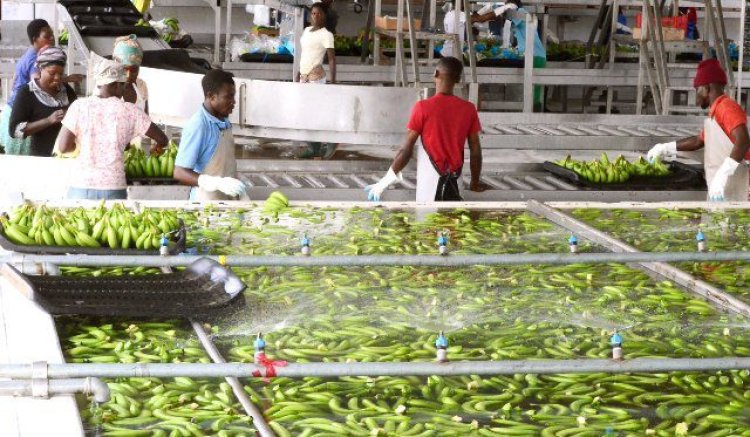President of the African Development Bank (AfDB) makes a plan for the coming global food crisis
The impact of the Russia-Ukraine war has spread well beyond both countries to other areas of the world, with worldwide wheat prices surging by about 50%, matching levels seen during the 2008 global food crisis.

African countries should prepare for the imminent global food crisis, according to the President of the African Development Bank Group.
In the backdrop of what he termed as a once-in-a-century convergence of global concerns facing Africa, Dr. Akinwumi Adesina also called for heightened urgency.
Conflicts, climate change, and the Covid-19 pandemic, he claimed, have harmed the continent's most vulnerable countries, disrupting their progress and economic development.
In the continent with the lowest GDP growth rate, up to 30 million jobs have been destroyed. Must this aim, Dr. Adesina cautions Africa to rapidly increase its food production of a food crisis.
"Through the African Food Crisis Response and Emergency Facility – a dedicated facility being considered by the Bank to provide African countries with the resources needed to raise local food production and procure fertilizer – the African Development Bank is already active in mitigating the effects of a food crisis."
Dr. Adesina was speaking on African objectives as a guest at the Atlantic Council's Africa Centre.
The impact of the Russia-Ukraine war has spread well beyond both countries to other areas of the world, with worldwide wheat prices surging by about 50%, matching levels seen during the 2008 global food crisis.
The impact of the battle on fertilizer and energy prices, according to Dr. Adesina, could exacerbate the growing costs of food baskets in Africa in the coming months.
He points out that wheat accounted for 90% of Russia's $4 billion exports to Africa in 2020, while wheat accounted for 48 percent of Ukraine's near $3 billion exports to the continent and maize for 31%.
Dr. Adesina also discussed the Bank's unique flagship effort, the Technologies for African Agricultural Transformation (TAAT) program, which includes nine food commodities in over 30 African nations and has already seen early results.
"We're putting our money where our mouth is," said the group. We are increasingly creating our food. Our Africa Emergency Food Production Plan will result in a total of 38 million metric tons of food being produced." He stated his case.
He claims that TAAT has already provided heat-resistant wheat types to 1.8 million farmers in seven countries and that heat-tolerant varieties are now being cultivated on hundreds of thousands of hectares in Ethiopia and Sudan, with great success.
According to him, the Ethiopian government has implemented the TAAT program on 200,000 hectares of lowland irrigated wheat, with farmers reporting yields of 4.5 to 5 times per hectare.
According to him, that's climate-smart seeds are also thriving in Sudan, which had its greatest wheat harvest ever in the 2019-2020 season — 1.1 million tonnes of wheat.
Between 2018 and 2019, 5.2 million households in Southern Africa cultivated heat-tolerant maize varieties on 841 thousand hectares, increasing maize production by 631,000 metric tonnes to a value of $107 million in Zimbabwe, Malawi, and Zambia.
Dr. Adesina is concerned about the urgent need for the African Development Fund to be replenished to support low-income African countries. According to him, the Fund has helped 15.5 million people gain access to power and 74 million people improve their agriculture.
It has also provided 50 million people with access to transportation, including 8,700 kilometers of roads, and 42 million people with improved water and sanitation services.

 Boakyewaa Lawrencia
Boakyewaa Lawrencia 

































